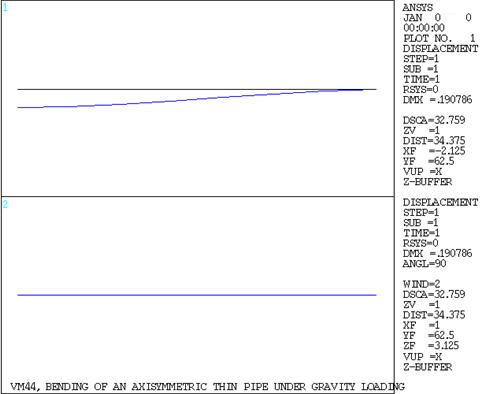VM44
VM44
Bending of an Axisymmetric Thin Pipe
Test Case
A long thin-walled pipe is rigidly supported at its ends between
two walls. Determine the maximum deflection in the pipe due to gravity
loading. Determine the maximum tensile stress σmax at the outer surface of the pipe at Y = 0.
Analysis Assumptions and Modeling Notes
The loading g, which is constant in magnitude and direction
around the circumference of the pipe, is applied as the sum of two
harmonically varying loads. Each load has one wave around the circumference
and is 90° out of phase with the other.
Results Comparison
Corresponds to S1 at BOT of element
1 (section at node I).



